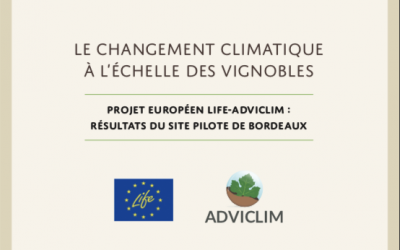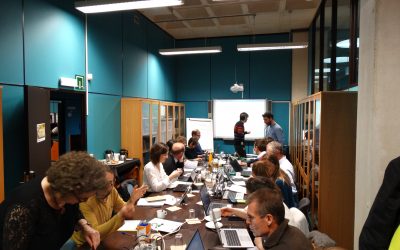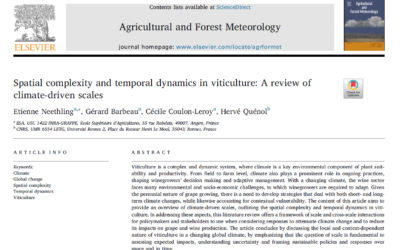High resolution study of viticultural adaptation and mitigation scenarios
The project
In the current context of climate change, the wine industry is facing multiple challenges, including adapting its practices and reducing greenhouse gas emissions related to its activities.
In response to these challenges, recognising the need to assess climate and its impact on viticulture at the vineyard scale, the LIFE-ADVICLIM project aims to study climate change adaptation and mitigation scenarios for a range of vineyards which represent the climatic diversity of European wine regions.
The LIFE-ADVICLIM project will develop climate change adaptation and mitigation strategies which can be adapted to European wine regions, and demonstrate their application at the vineyard scale. The project’s measurement network and web platform will enable wine producers to assess the impacts of climate change on their plots, simulate adaptation scenarios, and measure the greenhouse gas emissions related to their practices. These technologies
are being tested on demonstration sites in five European vineyards regions: Cotnari, Rheingau, Bordeaux, Sussex and Val de Loire, thanks to funding from the European Life programme.
Check out our results
Bordeaux pilot site results
Find out the Bordeaux pilot site results: temperature evolution, climate variability, modelling, vine behavior, emission mitigation; how those factors impact vineyards.
Final stretch before the final report!
The time has come to compile the results and publish the final deliverables, finalize dissemination and strengthen networking and team building. The final meeting of the LIFE-ADVICLIM was held on 28 January 2020 at the Department of Agronomy of the University...
Spatial complexity and temporal dynamics in viticulture: A review of climate-driven scales
Viticulture is a complex and dynamic system, where climate is a key environmental component of plant suitability and productivity. From field to farm level, climate also plays a prominent role in ongoing practices, shaping winegrowers’ decision making and adaptive...








